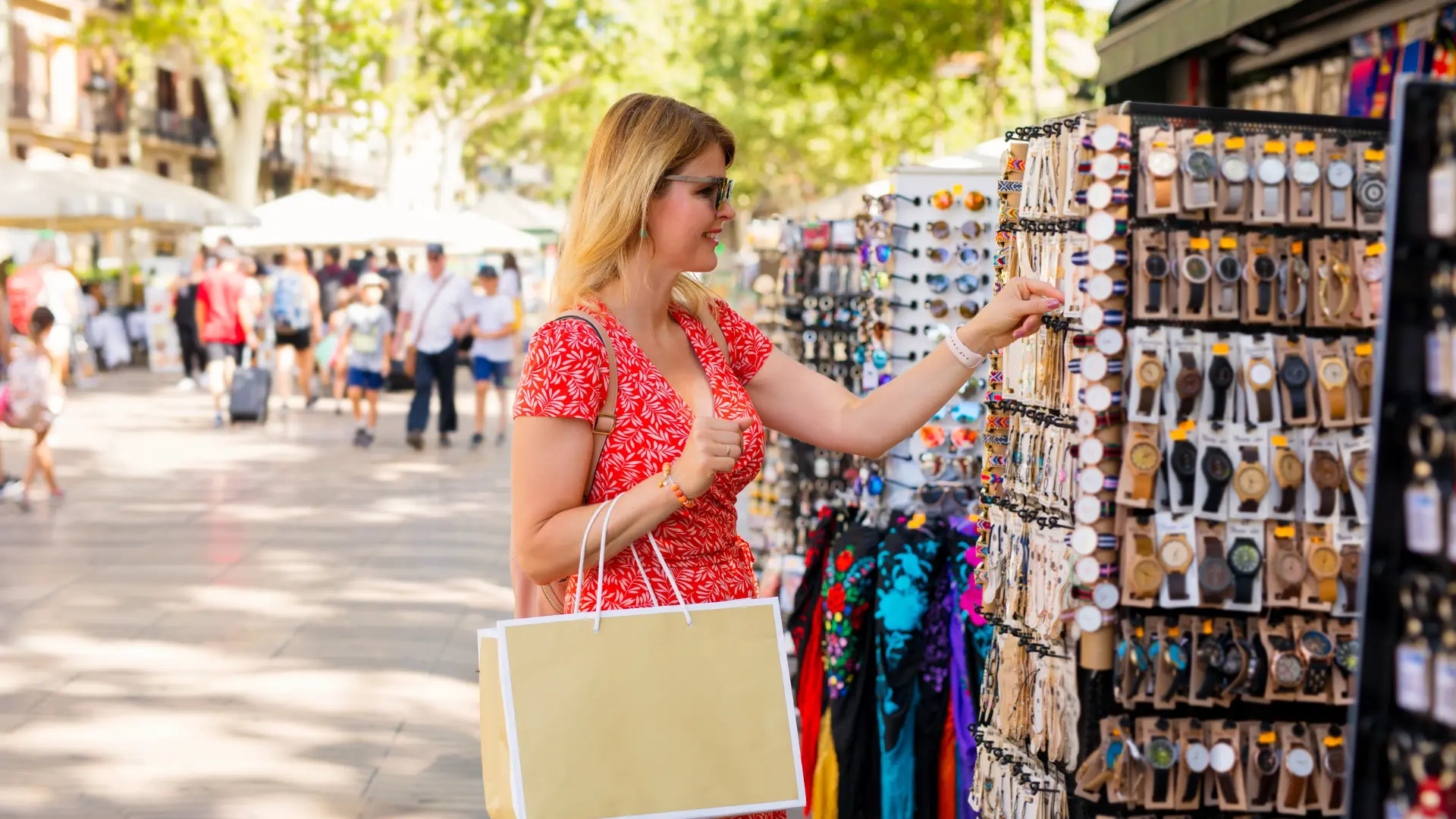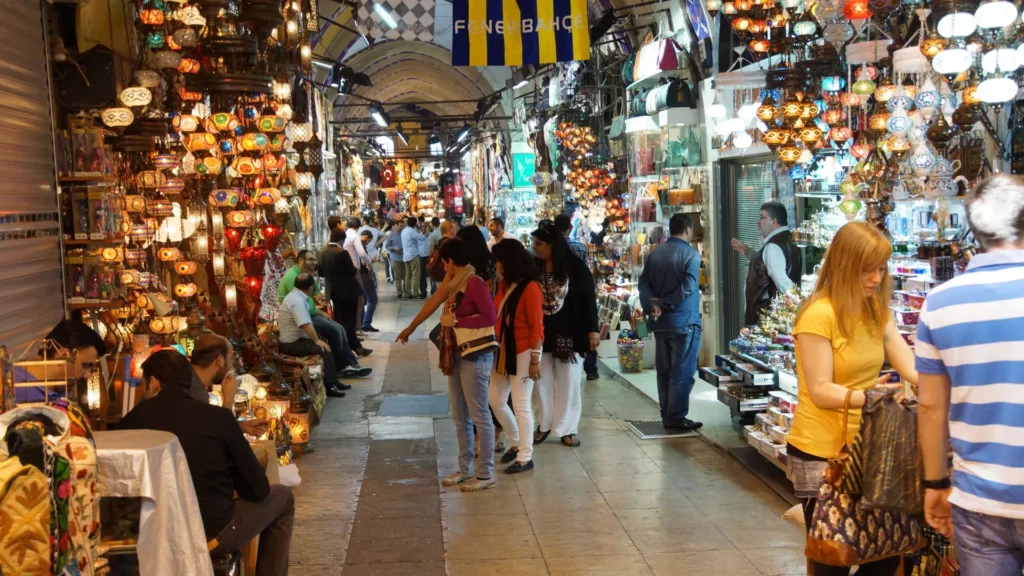Turkey Hair Transplant Souvenirs
Your ultimate guide to Turkey Hair Transplant Souvenirs.
Turkey has gained international recognition as a leading destination for hair transplants, attracting thousands of medical tourists each year. Beyond its affordability and top-tier clinics, Turkey offers a rich cultural experience that makes the trip more than just a medical journey.
Many visitors seek souvenirs to commemorate their transformation, celebrate their new look, or simply take a piece of Turkey’s vibrant culture home. Souvenirs serve as a beautiful reminder of a significant life moment and allow travelers to appreciate Turkish heritage through authentic products.
This guide explores the best souvenirs to buy after a hair transplant in Turkey. It covers traditional keepsakes, practical post-transplant essentials, where to find the best deals, and shopping tips to enhance the experience.

Why Buy Souvenirs After a Hair Transplant in Turkey?
Visiting Turkey for a hair transplant is not just about medical procedures; it is an experience that leaves a lasting impact. Bringing home souvenirs is a meaningful way to mark this milestone, celebrate the journey, and connect with Turkey’s rich culture.
Whether it’s a symbolic keepsake, a practical recovery item, or a gift for loved ones, souvenirs serve as tangible reminders of this transformative trip.
- Symbolic Significance – A hair transplant often represents a fresh start, improved confidence, and self-care. A carefully chosen souvenir can serve as a reminder of this transformative journey, reinforcing a sense of accomplishment and positive change.
- Cultural Appreciation – Shopping for souvenirs allows visitors to immerse themselves in Turkey’s vibrant traditions, from handcrafted ceramics to authentic Turkish tea. Engaging with local artisans and markets fosters a deeper understanding and appreciation of the country’s heritage.
- Gifts for Friends and Family – Bringing back a piece of Turkey for loved ones is a thoughtful way to share the experience. Unique items such as handwoven textiles, artisanal jewelry, or traditional sweets like baklava make for memorable gifts that reflect Turkey’s craftsmanship and culinary excellence.
- Practical and Healing Items – Some souvenirs have functional benefits, especially for post-transplant recovery. Organic hair care products, silk pillowcases, and herbal remedies like black seed oil help promote scalp healing and hair health.
- Personalized Keepsakes – Custom-made souvenirs, such as engraved jewelry or calligraphy art, add a personal touch to the experience. These unique items serve as cherished reminders of the trip and the personal journey undertaken.
- A Connection to Turkish Hospitality – Turkey is known for its warm hospitality, and shopping in local markets often includes friendly conversations, complimentary tea, and cultural insights. Taking home a souvenir extends that hospitality beyond the trip, keeping a piece of Turkey’s welcoming spirit alive.
Whether purchasing for sentimental value, cultural appreciation, or practical use, souvenirs are an essential part of making a Turkey hair transplant journey unforgettable

Best Souvenirs to Buy After Your Hair Transplant
Turkey is an excellent place to shop for unique souvenirs that blend tradition, craftsmanship, and practicality. Whether you’re looking for cultural artifacts, delicious treats, or practical post-hair transplant essentials, Turkey has a wide range of options. Bringing home a souvenir not only allows you to remember your trip but also gives you a piece of Turkey’s rich history and artistry.
Traditional Turkish Delights and Food Products
Turkish cuisine is world-renowned, and many travelers bring home traditional Turkish food products as souvenirs. These edible delights offer a taste of Turkey long after the journey ends.
- Turkish Delight (Lokum) – One of Turkey’s most famous confections, Turkish delight comes in a variety of flavors, from classic rose and pomegranate to pistachio-filled delights. The best versions are found in specialty shops rather than mass-produced airport versions. Shops such as Hacı Bekir and Ali Muhiddin Hacı Bekir offer high-quality, authentic lokum.
- Baklava – A rich, flaky dessert made with layers of pastry, honey, and nuts, baklava is an excellent treat to bring home. Some of the best places to buy fresh, vacuum-sealed baklava include Karaköy Güllüoğlu and Hafız Mustafa, which provide high-quality packaging for travel.
- Turkish Tea and Coffee – Turkish tea, served in elegant tulip-shaped glasses, is a cultural staple. Bringing home a selection of black tea, apple tea, or herbal blends allows travelers to recreate the experience. Turkish coffee, known for its strong, rich flavor, is another excellent choice, best paired with a traditional copper cezve (coffee pot) and engraved coffee cups.
- Spices and Herbs – Turkey is home to an abundance of aromatic spices, including sumac, saffron, za’atar, and isot pepper. The Spice Bazaar in Istanbul is one of the best places to buy high-quality, authentic spices in beautifully packaged sets, perfect for cooking or gifting.
- Dried Fruits and Nuts – Turkey is famous for its sun-dried apricots, figs, and hazelnuts. These nutritious snacks make excellent souvenirs, offering a taste of Turkish flavors while being easy to transport.
- Turkish Honey and Jams – Turkish honey, particularly from regions like Anzer and Marmaris, is prized for its high quality. Rose jam, mulberry jam, and citrus marmalade are also popular choices for those who love natural sweets.
Grooming and Hair Care Products (Post-Transplant Essentials)
After a hair transplant, proper scalp care is essential. Turkey offers a variety of natural hair care products that help with healing and hair growth.
- Organic Hair Oils – Natural oils such as argan oil, black seed oil, and olive oil are widely available in Turkey. These oils nourish the scalp, reduce inflammation, and strengthen hair, making them a great addition to a post-transplant care routine.
- Turkish Shampoo and Natural Soaps – Sulfate-free, chemical-free shampoos infused with olive oil, nettle, and aloe vera can aid in gentle scalp cleansing. Handmade olive oil soap from Mardin and Bursa is an excellent, eco-friendly choice for sensitive skin and hair recovery.
- Silk Pillowcases and Bonnets – Essential for protecting new hair grafts, silk pillowcases reduce friction and prevent damage while sleeping. Turkish textile stores sell high-quality silk and cotton pillowcases, making them both luxurious and beneficial for hair care.
- Herbal Hair Growth Supplements – Some herbal hair care products, such as biotin-rich supplements and herbal-infused hair serums, are available in pharmacies and specialty stores. These products can support hair regrowth after transplantation.
Turkish Textiles and Handicrafts
Turkish textiles are known for their high-quality materials, vibrant colors, and traditional weaving techniques. Many of these items are lightweight and easy to carry home.
- Handwoven Towels (Peshtemal) – These lightweight and absorbent towels, traditionally used in Turkish hammams, make excellent souvenirs. Available in soft cotton and bamboo blends, they are perfect for everyday use, gym sessions, or as a stylish beach towel.
- Turkish Rugs and Carpets – Handmade rugs and carpets are a signature Turkish craft. Whether opting for a large silk carpet or a small kilim rug, purchasing from a certified dealer or local artisan ensures authenticity and quality.
- Evil Eye (Nazar Boncuğu) Charms – A widely recognized symbol in Turkey, the evil eye amulet is believed to ward off negative energy. It makes a great gift or personal keepsake, available in forms such as necklaces, bracelets, wall hangings, and keychains.
- Handwoven Scarves and Shawls – Turkish scarves and shawls, made from silk, cotton, and wool blends, are stylish and practical accessories. They come in a variety of hand-embroidered and printed designs inspired by Ottoman and Anatolian patterns.
Fashion and Accessories
Turkey is home to skilled artisans and designers who create luxury leather goods, handcrafted jewelry, and high-end fashion pieces.
- Turkish Leather Goods – Turkish leather is known for its durability and craftsmanship. Hand-stitched wallets, belts, jackets, and handbags are stylish and practical souvenirs. The Grand Bazaar and local leather boutiques in Istanbul offer high-quality selections.
- Jewelry and Handmade Silver – Turkey is home to skilled jewelers who craft intricate silver and gold pieces. Handmade Ottoman-style rings, bracelets with semi-precious stones, and engraved pendants showcase exquisite artistry.
- Designer and Luxury Shopping – Istanbul’s Nişantaşı district is home to high-end boutiques and designer stores, offering premium fashion items. Turkish designer brands such as Vakko, Dice Kayek, and Arzu Kaprol are excellent choices for those interested in high fashion.
- Handmade Leather Sandals – A popular choice for fashion lovers, Turkish artisans craft high-quality, durable leather sandals inspired by traditional Ottoman designs.
Cultural and Artistic Souvenirs
For those looking for unique, decorative, and artistic souvenirs, Turkey offers a wide range of handmade ceramics, paintings, and traditional artifacts.
- Handmade Ceramics and Iznik Tiles – Vibrant, hand-painted ceramics are a Turkish specialty. Iznik tiles, known for their blue and white patterns, are perfect for decorating homes with a touch of Ottoman elegance.
- Calligraphy and Miniature Art – Turkish calligraphy and traditional miniature paintings depict Ottoman history and Islamic artistry. These make sophisticated and unique souvenirs.
- Turkish Musical Instruments – For music enthusiasts, traditional instruments such as the oud, saz, and ney flute make distinctive and cultural keepsakes.
- Handcrafted Copperware – Copper trays, tea sets, and engraved coffee pots make beautiful home décor items and functional souvenirs.
- Traditional Shadow Puppets (Karagöz & Hacivat) – These colorful, handcrafted puppets represent Turkish folklore and make for unique decorative souvenirs.

Where to Buy Authentic Souvenirs in Turkey?
Turkey is a shopper’s paradise, offering a wide variety of traditional and contemporary souvenirs.
Whether you’re looking for handmade crafts, spices, or luxurious textiles, finding authentic, high-quality souvenirs is key.
The best places to shop are bazaars, artisan workshops, and specialty stores, where travelers can interact with local vendors and craftsmen while ensuring they get genuine Turkish products.
- Grand Bazaar (Istanbul) – One of the world’s oldest and largest covered markets, the Grand Bazaar offers an extensive selection of souvenirs, from handwoven textiles and Turkish carpets to gold and silver jewelry, ceramics, and leather goods. With over 4,000 shops, it is a must-visit location for those seeking authentic Turkish artistry. Bargaining is common, so visitors should negotiate for the best prices.
- Spice Bazaar (Istanbul) – Also known as the Egyptian Bazaar, this historical market is the best place to purchase high-quality spices, Turkish tea, dried fruits, saffron, sumac, and traditional sweets like Turkish delight and baklava. The vendors here specialize in fresh and premium-quality ingredients, making it a great stop for food lovers.
- Local Artisan Shops – Cities like Cappadocia, Bursa, and Gaziantep are famous for their handmade ceramics, silk scarves, copperware, and carpets. Cappadocia, in particular, is known for its distinctive pottery, while Bursa is home to some of Turkey’s finest silk producers. Gaziantep is the best place to find authentic handcrafted copper trays and kitchenware. Shopping directly from local artisans supports small businesses and ensures authentic craftsmanship.
- Arasta Bazaar (Istanbul) – Located near the Blue Mosque, Arasta Bazaar is a less crowded alternative to the Grand Bazaar. It offers handwoven rugs, Turkish textiles, and high-quality ceramics in a quieter, more relaxed setting.
- Boutique Shops in Nişantaşı (Istanbul) – For luxury souvenirs such as designer fashion, high-end jewelry, and artisan-crafted home décor, the upscale Nişantaşı district is a great shopping destination. This area is home to Turkish and international designer boutiques, making it perfect for those seeking exclusive and premium-quality items.
- Traditional Hammams (Turkish Bath Houses) – Some of the best places to buy authentic Turkish bath products, such as natural olive oil soaps, silk bath mitts, and handmade hammam towels (peshtemal), are directly from traditional Turkish bathhouses like Çemberlitaş Hammam and Hurrem Sultan Hammam in Istanbul.
- Duty-Free and Airport Shopping – While convenient for last-minute purchases, airport souvenir shops and duty-free stores tend to be more expensive. However, they are great for premium Turkish delight, boxed baklava, high-end Turkish perfumes, and designer items that may be difficult to find elsewhere.
Shopping in Turkey is not just about purchasing items; it is an immersive cultural experience. Whether navigating bustling bazaars or quiet artisan workshops, buying souvenirs directly from local vendors and craftsmen ensures authenticity, quality, and a meaningful connection to Turkish heritage.

Shopping Tips and Bargaining Strategies
Shopping in Turkey is an exciting experience, especially in bazaars, local markets, and artisan shops, where bargaining is part of the culture. Whether you’re purchasing handmade carpets, jewelry, spices, or Turkish textiles, knowing the right shopping strategies ensures you get authentic, high-quality products at fair prices.
- Haggling Tips – Bargaining is an accepted and expected practice in Turkish bazaars. Vendors often quote higher prices, anticipating negotiations. Always start with a counteroffer lower than the asking price, typically 40-50% less, and slowly work towards a mutually agreeable price. Stay polite but firm, and be ready to walk away if necessary—this often encourages sellers to lower their prices further.
- Spotting Authentic vs. Fake Items – High-quality Turkish goods, such as handwoven carpets, silk scarves, and leather products, usually come with certificates of authenticity. When purchasing jewelry, ceramics, or antiques, ask about materials, craftsmanship, and origin. Genuine handmade carpets and kilims have slight imperfections, while machine-made replicas are often too uniform.
- Best Payment Methods – While credit cards are widely accepted in most shops, some vendors offer discounts for cash payments. Carry Turkish Lira (TRY) or USD/Euros to negotiate better deals. Before paying, check the exchange rate and ask if there’s a surcharge for credit card payments.
- Avoiding Tourist Traps – Many shops in high-traffic tourist areas overcharge for mass-produced items. For better deals, shop in local markets, artisan cooperatives, or family-run stores. Visit less crowded areas, such as Cappadocia, Bursa, and Gaziantep, where artisans sell authentic, handcrafted products at reasonable prices.
- Ask for Recommendations – Locals often know the best places to shop. Asking your hotel staff, tour guides, or locals can lead to hidden gems where prices are fair, and the quality is superior.
- Shop Late in the Day – Vendors may be more willing to lower their prices towards the end of the day to make final sales before closing.
- Know the Return Policy – Unlike international retailers, many bazaar shops and street vendors do not accept returns. Ensure you are completely satisfied with your purchase before making payment.
By following these tips, you can enjoy an authentic, fair, and rewarding shopping experience in Turkey, bringing home high-quality souvenirs that reflect the country’s rich culture and craftsmanship.

Packing and Transporting Souvenirs Home
Bringing home authentic Turkish souvenirs requires careful planning to avoid damage, excess baggage fees, or customs-related issues. Many popular souvenirs, such as ceramics, spices, and Turkish delights, need proper packaging and transportation strategies to ensure they arrive safely.
- Airport and Customs Regulations – Different countries have varying regulations regarding the import of food products, spices, dried fruits, and handmade items. Before traveling, check your country’s customs policies to avoid confiscation. Some countries have restrictions on organic materials, liquids, and fresh food items, so ensure that edible souvenirs are vacuum-sealed and properly labeled. Certain antique items and handmade artifacts may require special documentation for export.
- Packing Fragile Items – Ceramic plates, Turkish tea sets, glass lamps, and decorative items should be carefully wrapped in bubble wrap and placed in hard-shell luggage or hand-carried to prevent breakage. For extra security, wrap fragile items in soft clothing or towels for additional padding. If possible, request professional packaging from the seller when purchasing delicate items like Iznik tiles, glassware, or copper trays.
- Luggage Weight and Airline Allowances – Turkish bazaars and markets are filled with tempting, high-quality products, but buying too much can lead to expensive baggage fees. Airlines have strict weight limits for checked and carry-on bags, so check these before shopping extensively. If you plan to buy large carpets or heavy ceramics, consider shipping them separately through DHL, FedEx, or Turkish postal services. Many reputable stores offer international shipping with insurance to ensure safe delivery.
- Hand-Carrying Delicate Items – Some valuable or delicate souvenirs, such as jewelry, handmade textiles, and smaller ceramics, are best kept in carry-on luggage. Avoid placing liquids, oils, or food items in carry-ons, as they may be subject to security restrictions.
- Protecting Food Products – When bringing home Turkish delights, baklava, spices, or nuts, opt for vacuum-sealed or airtight packaging to prevent spillage or spoilage. Keeping food items in resealable plastic bags adds extra protection.
- Checking Duty-Free Shopping Rules – Many airports have duty-free shops selling high-quality Turkish souvenirs, but prices are often higher than local bazaars. If purchasing alcohol, perfumes, or specialty foods, check import limits for your destination country.
With proper planning and smart packing techniques, travelers can transport their souvenirs safely and efficiently, ensuring they arrive undamaged and ready to enjoy at home.
Final Thoughts
Bringing home a souvenir from Turkey is more than just a shopping experience—it is a way to celebrate and remember a significant milestone.
Whether choosing cultural artifacts, handmade crafts, hair care essentials, or traditional Turkish treats, each item represents a piece of Turkish heritage and the memory of a transformative journey.
Shopping for souvenirs enhances the overall travel experience, turning it into a meaningful adventure beyond medical tourism.
By choosing authentic products, shopping at reputable stores, and packing wisely, travelers can ensure their souvenirs remain cherished keepsakes that remind them of Turkey’s rich culture, craftsmanship, and warm hospitality for years to come.
